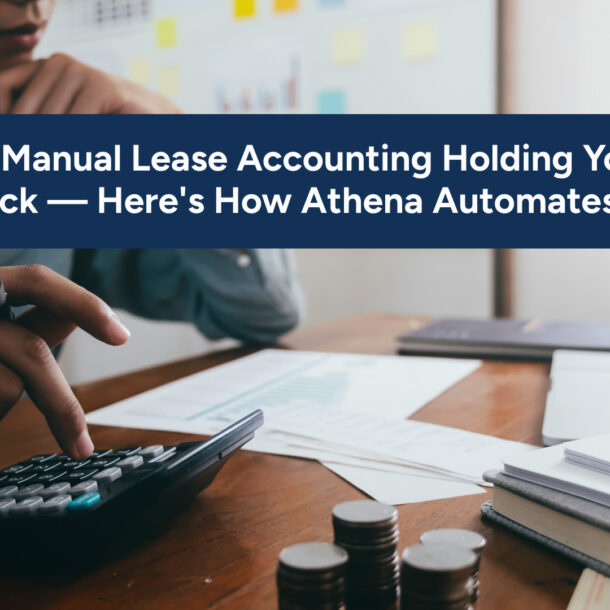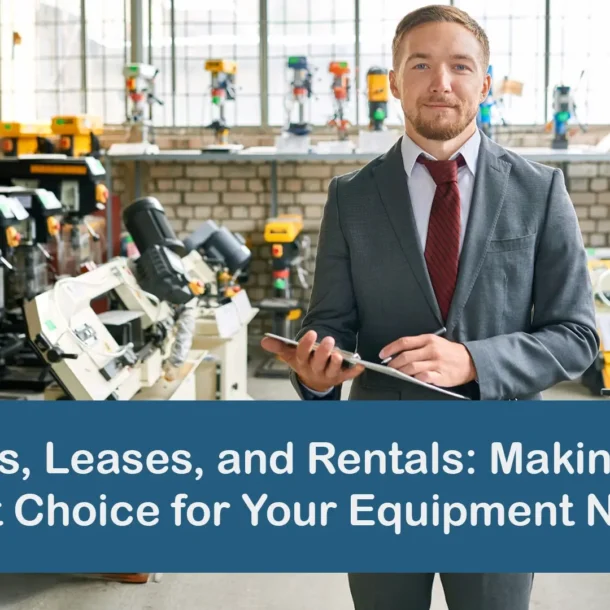
Introduction: The Fragmentation Problem in Modern Lease Management
In the past, managing leases was a back-office task frequently assisted by spreadsheets, various CRMs, and outdated ERP software. However, many lessors work in operational silos as a result of the leasing portfolios’ exponential growth, particularly in the areas of fleet cars, construction equipment, and industrial assets.
Tools may vary by region. Your billing, compliance reporting, and lease initiation teams may employ a different approach. Operational chaos, audit risk, and missed opportunities are the outcomes.
The answer? A single, integrated system for managing lease portfolios, streamlining processes, and generating strategic insights.
The Case for Centralized Leasing
Aligning your entire company around a single platform that unifies origination, servicing, asset management, billing, and compliance in a single workflow is what a unified lease system is all about—not just digital transformation.
The main problems with contemporary lease operations are resolved by centralization:
Errors in data duplication and reconciliation
Bottlenecks in operations and manual procedures
Scaling across geographical boundaries is challenging
Unreliable client experiences
Postponed financial reporting
Benefits of Centralized Leasing for Vehicle and Equipment Lessors
Let’s examine the advantages of centralized leasing for lessors who oversee intricate portfolios of multiple assets.
1. One Verified Source for Lease Information
Teams lose valuable time updating disparate systems, reconciling spreadsheets, and responding to audit requests when lease data is across several tools. All parties involved—sales, finance, operations, and compliance—are guaranteed to work with the most recent lease data in real time when using a lease operations platform.
2. Automated and Simplified Lease Workflows
Throughout the lease lifecycle, process automation is possible with a centralized system. Lessors can minimize errors and delays by streamlining operations from contract creation to automated invoicing, payment matching, and asset tracking. This automation frees teams to focus on value-added activities like customer service and portfolio optimization.
3. Quicker Onboarding of New Clients and Resources
Onboarding speed can make or break a deal, whether you are financing construction equipment or fleet cars. Centralized lease workflows eliminate the need for manual input or system switching by enabling your team to configure lease structures, apply pricing models, and issue contracts.
4. Improved Readiness for Compliance and Audits
A centralized leasing solution ensures audit trails, version control, and compliance checks are integrated into every transaction because lease accounting regulations such as ASC 842 and IFRS 16 require timely and accurate reporting of lease liabilities and assets. It removes the possibility of non-compliance brought on by manual errors or system fragmentation.
5. Lower Operating Expenses
A centralized platform speeds up month-end close and reduces the number of employees needed for reconciliation.
6. A Better Experience for Customers
Consumers anticipate prompt assistance, accurate billing, and self-service. Regardless of location or product line, lessors can provide integrated customer portals, quicker query resolution, and consistent communication by centralizing operations.
How to Unify Lease Operations Across Departments and Geographies
Because of regional autonomy, M&A activity, or organic growth, many lessors function in silos. However, strategy, not technology, is the key to integrating lease operations.
A successful transition looks like this:
Process mapping should come first
List every lease touchpoint, including asset return, collections, and customer acquisition. Keep track of people and processes, what tools they employ, and where there are any gaps.Choose a Platform Designed for Leasing Vehicles and Equipment
Generic accounting software or CRMs frequently fall short. Choose a lease management software that supports finance and operating leases, asset tracking, multi-entity accounting, and configurable workflows applicable to your business model.Move in Stages, Not All at Once
Start with a single product line or region. Go live after cleaning the data and coordinating the workflows. Utilize that pilot as a model for implementation throughout the company.Take the Lead in Change Management
People are the obstacle, not the software. Adoption requires clear communication, executive sponsorship, and user training.
Platforms for Lease Automation: What to Look For
Digital platforms for lease operations are not all made equal. To facilitate centralized operations, search for:
Multi-entity capabilities to support various countries or business units
Automation of workflows for collections, billing cycles, renewals, and approvals
Adaptable contract formats for different kinds of leases
Using role-based access control to empower users and protect data
Analytics and dashboards in real-time to track the health of the portfolio
Integrations with banking, inventory, CRM, and accounting systems
Origination, contract administration, asset tracking, collections, and reporting should be on a single, smooth platform in a fully integrated lease management system. No more switching between tools. No more gaps in knowledge.
How to Consolidate Several Lease Portfolios
The difficulty increases if your company oversees multiple lease portfolios, such as equipment leases under one subsidiary and car leases under another.
Here’s how to unite them without causing mayhem:
Standardize the definitions of data
Ensure that accounting codes, asset classifications, customer types, and lease attributes are consistent throughout portfolios.Make Use of a Common Policy Framework and Chart of Accounts
To ensure consistent reporting, align depreciation policies, approval hierarchies, and accounting rules.Select a Platform That Supports Segmentation or Multi-Tenancy
Select a system that establishes distinct operating environments on a single platform, each with its rules but reporting the same information.Make a cross-portfolio reporting and forecasting plan
Create dashboards that provide executives with information about the leasing process, not just specific business divisions.
Lessors can cross-sell or bundle services across customer segments, gain enterprise-wide visibility, and strengthen governance by centralizing multiple lease portfolios.
Reducing Lease Operation Costs Through Centralization
Cost savings is one of the best justifications for a centralized leasing platform. However, how precisely does it reduce expenses?
Removes Superfluous Software Licenses
Costs associated with multiple-point solutions across departments frequently overlap. Eliminate redundancies with a single platform.Cuts Down on the Number of Manual Workers
Process automation reduces the number of employees required for invoice processing, compliance reporting, and reconciliations.Accelerates Month-End Tasks related to closure and compliance
Saving time equates to saving money. Lessors can respond to auditors without rushing to close books more quickly with real-time updates.Reduces Financial Leakage and Errors
Duplicate asset records, misapplied payments, and missed billing escalations are costly. These problems are detected by automation before they become expensive.
Centralization is a one-time investment that pays dividends year over year—not just in dollars saved, but in risk avoided and agility gained.
The Future is Integrated
The companies with the most nimble and cohesive back-office operations will emerge victorious in the equipment and car leasing market in the upcoming years, not the ones with the most aggressive sales teams.
Clean, connected data is essential for AI-driven lease analytics, embedded finance, real-time pricing models, and customer self-service. Centralization is the only way to achieve that.
Customer satisfaction, regulatory resilience, and digital innovation are all built on a single lease management system.
Ask yourself:
How much will it cost to continue operating in this manner for another year if you’re still using a patchwork of systems, manual trackers, and department-specific tools?
Conclusion: One Platform, Infinite Possibilities
Centralizing lease operations is a strategic move that sets up your leasing company for long-term growth, efficiency, and compliance. It’s not just a technological upgrade.
Switching to a centralized lease management platform does more than enhance current processes. You’re enabling it for tomorrow’s creativity, wisdom, and scale.
In the car and equipment industry, lessors have too much on the line to accept fragmentation. It’s time to streamline your business operations, automate your procedures, and revolutionize lease management using a single platform—because when everything is interconnected, the possibilities are endless.

Industry Associations
We're Here to Help!
Reach our dedicated support team
at info@athenafintech.com or +1 650 701 7703.
Questions or assistance?
We’ve got you covered.
Athena Fintech Inc.
HQ: California, USA
Tech Center: India
Athena Fintech Inc.
HQ: California, USA
Tech Center: India



